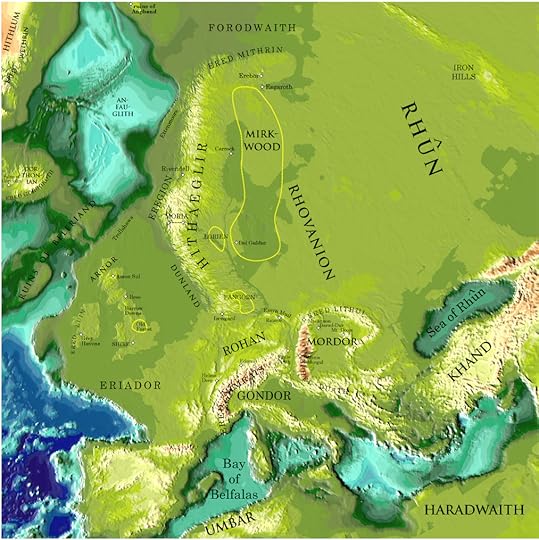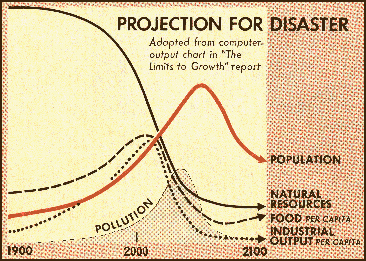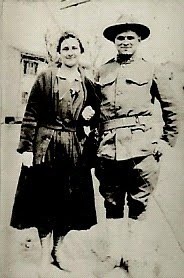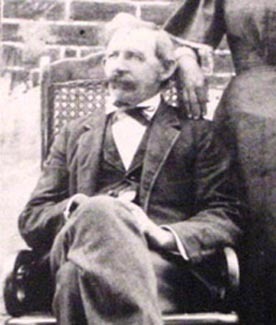Michael Flynn's Blog, page 52
June 15, 2011
Film Festival
The BBC TV movie Life Story about the discovery of the structure of DNA is on YouTube in ten parts. I saw it years ago, and for those who remember science and what discovery feels like, it is a very true film. Follow this to YouTube and you will be cued to continue on each of the parts.
Odds and Ends
"Four Restaurant Customers Burned by Flaming Bananas"--headline, Northwest Florida Daily News (Fort Walton Beach), June 13
Imagine if He Were Not "Friendship Man"
"Friendship Man Kills Himself and Injures Wife in Process"--headline, Dyersburg (Tenn.) State Gazette, June 14
Unfortunate Headline of the Week
"Boehner Jokes About Weiner's Name in Ohio Speech"--headline, Associated Press, June 12
BTW, aren't we all just a little bit happier that Congressman Weiner's given name is not Richard?Speaking of Weiner
"Congressman Weiner departed this morning to seek professional treatment to focus on becoming a better husband and healthier person" -- Weiner publicist Risa Heller to New York Times last Saturday.
Minority Leader Nancy Pelosi concluded that his behavior required medical intervention. (also in the Times)
There is a strange notion implicit here: heterosexual behavior can be cured! Who knew? But isn't there something dehumanizing about the supposition that homosexuals are helpless victims of their urges while (with ptofessional treatment and medical intervention) heterosexuals can learn to control them?
+ + +
When is Weather Really Climate?
Ans. When it is bad weather. Just as global warming has been blamed for the recent earthquake and tsunami in Japan, so too it has been blamed for the recent spate of deadly tornadoes in tornado alley.
It is especially telling when the headlines report: the deadliest year for tornadoes since 1953; because what that means is that it was deadlier in 1953, before "global warming" is said to have begun. (We were well into global cooling at that time, but it would be another decade or so before people began to notice and worry.)
The NYTimes has this friendly interactive map. In it you can notice the impact of doppler radar: As it became more common, more funnel clouds were spotted and, apparently, what were once annotated as a single tornado traveling a long distance are now noted as a string of individual tornados deployed in a line. Most interesting is that during the period of "accelerated warming" from say 1974 to the El Nino of 1998, the number of tornado deaths was essentially low and flat; but as temperatures leveled off and began to decline tornado deaths increased again. Perhaps La Nina has something to do with it.
The other interesting thing about tornadoes is that nearly all of them are in Canada and the US. This is because North America is a Lean, Mean Tornado Machine.
Of course, global warming has been rebranded as "climate change," but this is like claiming that velocity is due to "location change," or that evolution is due to "species change." Change is of course what climates do, and efforts to stop the world are destined to fail.
+ + +
Words at Play
The Codgitator has this linguistic observation about Chinese recently discovered on his blog. Recently I was talking with a buddy about some confusing, in fact distressing, managerial actions at my school. He shrugged it off by saying, 'Well, you can't expect too much. It's Chinese, and therefore by definition illogical.' I replied, quite matter-of-factly, 'Funny you should say that. "Logic" is a borrow word, you know.' My buddy doesn't study Chinese; I do. And I learned almost as soon as I got to Taiwan that the Chinese word for 'logic' is but a phonetic translation: luójí. For me, having dealt with Chinese culture for only a few months then, the implications were curious at worst and humorous at best. For my buddy, however, who's been here around five years, this was a sheer epiphany. 'Ohhhhhhh! Of couuurrse! Logic is a borrow word! They had to take the word from English cuz they didn't have a word for it until like the nineteenth century! Everything makes sense now.'
(Of course, logic is a loan word in English, too. It comes from the Greek. But OTOH, it was inherited "genetically," as it were, given the close association of Romans with Greeks.)
Codgitator goes on to note in the same post:I was looking up the word 'fill in [a blank form]' (tiánbiǎo) and wanted to know how or when else to use tián ('fill'). Scanning down the options, my eyes stopped at the final, noticeably lengthy entry: tiányā. The first meaning is 'to overfeed and under-exercise ducks in order make their flesh more tender and sweet', presumably a technique used to create China's famous 'Peking duck' delights. The second meaning? 'To teach students any and all information needed to test (into a higher level or school).' In other words, to teach by 'stuffing the duck.'
Just as my buddy had his epiphany with luójí, so I had my epiphany with 'stuffing the duck'. No wonder my kids are unused to independent creative activites! No wonder my teaching is always at risk of being subjugated by students, parents and administrators to yield better grades on more tests! China's entire educational system -- as a matter of historical fact, even if my experience weren't probative enough -- is based on stuffing the duck!+ + +
A Palin in the Neck
The Great Tsunami of Sarah Palin Emails has yielded such bombshell headlines as:"Sarah Palin Emails Provide No Big Bombshells"--PoliticoPalin's E-Mails Undercut Simplistic Views of Her, Both Positive and Negative"--New York Times"Palin Emails Don't Contain Any Bombshell, 'Gotcha' Moments"--Anchorage Daily News"Search Shows Few Michigan References in Palin Emails"--Detroit News London's Daily Telegraph however reports something not mentioned in the NYTimes: viz., that Palin "received a barrage of abusive emails including death threats in the run up to the 2008 presidential race."
Patricia Williams, a Columbia professor, wrote an editorial in London's Guardian, titled "Sarah Palin Emails: Banal, Hypocritical and Smug . . . We Already Knew That." Inter alia, Williams was outraged to learn that Gov. Palin employed speechwriters and prayed for guidance.
One wonders if she isn't going to come out ahead at the end because her correspondence is boring. This is playing against the backdrop of revelations that New York Congressman Andrew [sic] Weiner sent hundreds of salacious texts and photos to women who were not his wife. By contrast, Palin's correspondence seems a paragon of virtue, as she is revealed fussing about her hair, wondering about dinner, and hiding the hootch from the kids. You could almost forget she's an idiot.
Set aside the question of whether a man who sends photos of his Johnson to strange women might not be a much bigger idiot than someone who wonders about dinner. Williams also complains that Palin is "often dead wrong about the facts." Yet (the WSJ notes) her 600-word piece contains at least three major factual errors. "Andrew" Weinergives wrong year for the Tucson massacre (for which she implies Palin is to blame) andascribed to Palin an incident involving Michele BachmannWhat is with the maniacal, mouth-foaming, death-threatening hatred here? How many losing VP candidates get this level of Orwellian contumely? It is hard to understand the media obsession. It is even harder to understand how these same media people can complain that Palin is always in the media.
+ + +
June 13, 2011
The Legacy of Poetry

My old poem "There's a Bimbo on the Cover of My Book" (sung to the tune of "She'll be Coming Round the Mountain") leads off the collection aforesaid. But early and often.
June 8, 2011
Clearing the Tabs
"MILLER: Harry Reid Hangs Weiner Out to Dry"--headline, Washington Times website, June 7
mapquest
Superimposed over Europe and North Africa. Evidently, during during one of the ice ages or earlier interglacials.

Mt. Doom turns out to be in Transylvania. Who knew?
Clearing the Tabs
There was a recent spate of news stories about a Canadian couple who had decided not to tell anyone whether their new kid was a boy or a girl. They did this so as to utterly confuse the poor kid based on their crypto-religious belief that "gender" roles are determined by Society™ and not by the science of genetics and biology. Now, this has been done before with the usual and expected results regarding the Fooling of Mother Nature. It almost always means the poor kid is a boy. We shall see.
Meanwhile, we have this from the late 19th century when girls were girls and boys were....

This is a photograph of the young Franklin Delano Roosevelt, so it says here. My dad voted for the guy once, so I asked him and he told me it was quite common back then to dress up all children as girls. Who knew? Maybe that is what accounts for World War One.
There is linguistic support. The English word "girl" originally mean a small child of either sex.(*) The word "boy" came from the Latin boia which referred to the leather collar worn by Roman slaves. The medievals, lacking slaves, used the term to refer to any servant and in particular by the master of any of his apprentices. Since nearly all apprentices were young males, the term "boy" shifted from "servant" to "male child." The female equivalent was "wench." Had serving wenches been more common than apprentice boys, we might talk today of girls and wenches rather than of boys and girls.
The German word Gör is defined in my dictionary as kleines Kind, small kid. The diminutive -lein is shortened to -l or -le in South German. Hence, Hansl and Gretl for Little Hans and Little Greta. Add the diminutive to Gör and you have Görl, which I once saw on the front page of a Viennese newspaper.
(*) Sex is biological; gender is grammatical. This is clear to near anyone but Anglophones. The German word for "manliness" (die Männlichkeit) is grammatically feminine.

German manliness personified

Much better personification of German manliness
June 6, 2011
Run! Hide!
[image error]Once more a public thinker has set forth to prove in public that he has no mind. The brain atoms inhabiting the vehicle called "Sam Harris" have moved Mr. Harris's fingers to type a blog post yclept: Free Will (And Why You Still Don't Have It) contending that he did not intend to type a blog post, but was caused to do so by a congeries of external and internal stimuli.
The post is an excerpt and/or digest of a section of the book which the brain atoms, responding to information from the external world, internal states of the body, and the ennoiasphere, entitled The Moral Landscape. Like Condorcet before him, Sam Harris expects that he can find morality inductively by means of physical science, as if by knowing the mass of an electron he would tell us whether we should off granny for the inheritance. In the course of this, his brain output replicated the following external stimuli:
Maundering Becomes Elektra
"The physiologist Benjamin Libet famously demonstrated that activity in the brain's motor regions can be detected some 300 milliseconds before a person feels that he has decided to move. Another lab recently used fMRI data to show that some "conscious" decisions can be predicted up to 10 seconds before they enter awareness (long before the preparatory motor activity detected by Libet). Clearly, findings of this kind are difficult to reconcile with the sense that one is the conscious source of one's actions."
Actually, findings of this kind are difficult to reconcile with the idea that they are scientific experiments, since they invariably over-interpret the actual empirical observations. Identifying the "response potential" with the "moment of decision" is to beg the question.
 In 1983, neuroscientist Benjamin Libet asked volunteers wearing scalp electrodes to flex a finger or wrist. When they did, the movements were preceded by a dip in the signals being recorded, called the "readiness potential". Libet interpreted this RP as the brain preparing for movement. Crucially, the RP came a few tenths of a second before the volunteers said they had decided to move. Harris cites this as evidence that free will is an illusion, even though there is no proof the RP represents a decision to move.
In 1983, neuroscientist Benjamin Libet asked volunteers wearing scalp electrodes to flex a finger or wrist. When they did, the movements were preceded by a dip in the signals being recorded, called the "readiness potential". Libet interpreted this RP as the brain preparing for movement. Crucially, the RP came a few tenths of a second before the volunteers said they had decided to move. Harris cites this as evidence that free will is an illusion, even though there is no proof the RP represents a decision to move. Now, how did Lisbet know when his subjects made a decision? The subjects self reported where a dot was on a clockface when they "felt" they had decided. But visual processing is sluggish. At the moment of decision, the subject would be "seeing" an earlier time than the present but which had only then been processed by the visual system. Curiously, no one contends that this proves that vision is an illusion. Besides, if I were to insert Elektra into your brain (see picture to right) you would be unlikely to think straight either.
Lisbet was actually aware of the problem of viscosity in response and tried to correct for it by a separate experiment estimating the time lag. He did this by applying a mild electrical shock to the back of the hand and noting when the subject reported feeling the shock. However, the time lag for tactile sensations is shorter than for visual (or auditory) sensations, thus Lisbet's correction was not enough. The 300 milliseconds appears to be an artifact of this effect.
Two other researchers, Miller and Trevena, also used scalp electrodes, but asked the subjects to wait for an audio tone before deciding whether or not to tap a key. An RP dutifully appeared but the signal was the same whether or not they elected to tap the key. Clearly, the RP is not an actual decision to move. Miller concluded that it might merely signal that the brain is paying attention.
Harris's brain atoms did not output this particular external stimulus into his essay.
The second experiment mentioned by Harris' brain atoms is that of Chun Siong Soon (et al.), described here. Subjects' brains were scanned by fMRI as they decided to press a button with their right or left index fingers, thus making it really-truly scientificalistic. To peg the moment-of-decision, subjects referred to a stream of letters on a screen. Patterns of brain activity in two areas "correlated" with the left/right decision appeared "up to" ten seconds before participants reported making their conscious decision.
Soon's study also predicted whether the subject would use his left or right hand well before they supposedly knew which choice they'd made. None of the accounts I've seen mentioned whether Soon had taken handedness into account. (I can predict pretty near 100% which hand my wife will use to write a note.) Also, in one account, I saw that this prediction was made correctly only about 65% of the time. This is significant only if Ho = 50% and people choose their hands at random. But it is well known that people cannot choose at random, and Soon's study seems to be another, more expensive confirmation of this. In my stat classes I have asked people to randomly choose one of the numbers 1 2 3 4, and about 50% will choose 3 when random chance would predict 25%. Almost no one chooses 1 or 4.
That someone might rev up his motor response region in anticipation of an immanent decision seems not to have crossed anyone's mind. Perhaps it was not one of the external stimuli in the "sphere of meaning" in which the Harris brain atoms float.
Mind That Brain!
 It is ludicrous to suppose that such tests are measuring "free will" rather than some congeries of unspoken assumptions. In addition to the belief that the null hypothesis is 50%, we have the assumption that the subconscious does not participate in acts of the will. Furthermore, when participants are asked to "choose one at random," they try to put themselves in a state where they let go of their will and "go with the flow." Is there any circumstance better designed to rermove the will from the process and capture a simple flow-through of stimulus to response? Soon's "up to" 10-second pre-decision is bizarre inasmuch as that is more than enough time for the subject to pull out the electrodes and stalk indignately from the room! And, yes, I did notice that all the accounts I read reported only an "up to" number, a max, with no average or standard deviation. That sounds suspiciously like reporting an outlier as if it were the normal response.
It is ludicrous to suppose that such tests are measuring "free will" rather than some congeries of unspoken assumptions. In addition to the belief that the null hypothesis is 50%, we have the assumption that the subconscious does not participate in acts of the will. Furthermore, when participants are asked to "choose one at random," they try to put themselves in a state where they let go of their will and "go with the flow." Is there any circumstance better designed to rermove the will from the process and capture a simple flow-through of stimulus to response? Soon's "up to" 10-second pre-decision is bizarre inasmuch as that is more than enough time for the subject to pull out the electrodes and stalk indignately from the room! And, yes, I did notice that all the accounts I read reported only an "up to" number, a max, with no average or standard deviation. That sounds suspiciously like reporting an outlier as if it were the normal response. All this is due to a profound misunderstanding of free will and a confusion of free will with free choice. (Choice is an act of the will; it is not the will itself.)
The brain atoms of Mr. Harris output the following response to various external stimuli:
"The human brain must respond to information coming from several domains: from the external world, from internal states of the body, and, increasingly, from a sphere of meaning--which includes spoken and written language, social cues, cultural norms, rituals of interaction, assumptions about the rationality of others, judgments of taste and style, etc. Generally, these streams of information seem unified in our experience."
Mr. Harris' brain atoms are to be congratulated for coming up with a nugget of Aristotelian-Thomistic psychology. (Although they seem to refer to "brain" and "mind" as if they were the same thing. This is circular, assuming that which ought to be proved.) I have given the name ennoiasphere to the "sphere of meaning." This provides a suitable pseudo-scientific patina to it. Harris' brain atoms seem to thing this ennoiasphere is something new that "increasingly" provides something called "information." But that "spoken and written language, social cues, cultural norms, rituals of interaction, assumptions about the rationality of others, judgments of taste and style, etc." was well known to Thomas Aquinas, who included it under the term "habits." Habits could be cultural, personal, or (as we now know) genetic. But habit is not a defeater for free will. It was known to Aquinas, and to Aristotle. One suspects even Plato knew of it.
Most of life must be lived on automatic pilot. That's why in addition to genetically-induced habits, we deliberately memorize alphabets and multiplication tables (or used to) as well as virtuous habits. Humans are rational animals and a rational animal is of course an animal. I once walked home from the dry cleaners down the block on autopilot while I mulled over some statistical issue, and did not come to until, inserting the key, I missed the lock and had to call on my conscious mind to finish the task. During that brief walk, I experienced something of what it was like to be a non-rational animal.
The Aristo-Thomist model of the mind (or "soul") is shown in the figure below. I posted it once before, but it is worth reposting, since Harris and his disciples appear never to have heard of it.

Let us first take the animal channel.
1. Sensation. A flood of meaningless particles cascade against the senses: photons onto the retina, molecules up the nose, sound waves hammer the ear, and so on. Harris's brain atoms think these are "information," but they are not. Such particles do not become information until the mind gives them meaning. (This is so routine in the human mind that it is actually very difficult to convince a materialist to act like a materialist.) The Harris brain atoms are close, but as yet win no cigar.
2. Perception. The inner sense called "common sense" unifies all the sensory inputs into a single phantasm or ymago. As Harris's brain atoms put it: "Generally, these streams of information seem unified in our experience." In addition, the inner senses include memory (which stores the ymago) and the imagination (which manipulates the ymago). This enables us to "see" an elephant even when it is not physically present (so we are already outside the realm of the physical), and to consider pink elephants and polka-dotted zebras. Sometimes this whole process is called the imagination. Imagination can accomplish wondrous things, like finding the cheese in a maze, or a bear riding a unicycle or a dog learning to fetch. One of the most frequent sources of confusion in the Late Modern world is the confusion of imagination with intellect. (This is confounded with such vague terms "intelligence" or "sentience.")
So much for the stimulus side. Now for the response side.
3. Emotion. These are the sensitive appetites for products of perception. They prepare the animal for motion; hence "e-motion" (move out, agitate). Keep in mind that it may be a disposition toward or away from the percept or ymago.
4. Motion. This is any change of form. Motion of location is only one sort of motion.
Note that the traditional model has a "short circuit." The autonomous nervous system generates motion directly from perception, as for example when we touch a hot stove or are struck under the kneecap with a mallet.
None of this need involve free will. In fact, there is no will at all involved. An animal becomes hungry, and it will seek out food, sometimes calling on memory to locate it. No animal goes on a diet or fasts for world peace. The mistake the Harris atoms make is to suppose that because some human acts are of this type, all human acts are of this type.
As to the rational part of the mind/soul:
5. Intellection. The intellect reflects upon the percepts and abstracts concepts. From the perception of Fido and Lassie and Rover, it abstracts the concept of "dog." It strips "dog" of all particulars of this dog or that dog, and presents to the will an indeterminate and immaterial abstracted object.
6. Volition. This is the intellective appetite for products of intellection, a disposition toward or away from the concept.
Because that which is higher governs that which is lower, the will modulates the emotions. Thus, rational animals are capable of overruling the sensitive appetites and exercise courage, temperance, prudence, etc. We can diet or fast even when we are hungry.
Immediately, we see how the Lispet and Soon experiments missed the point. They are testing mere physical motion, which is not especially the object of the will. It confuses free will with free choice.
No Matter What You Think
The Harris brain atoms write on and claim:"The truth seems inescapable: I, as the subject of my experience, cannot know what I will next think or do until a thought or intention arises; and thoughts and intentions are caused by physical events and mental stirrings of which I am not aware."
Now the first part is uncontroversial. It is like saying I cannot take a step without making a footprint. That I do not know what I will think until I think it is a tautology. I cannot taste food until I eat it. But the second part is simply to assert what the brain atoms ought to be proving. The Harris vehicle's admission that he has written an entire essay without being aware of the "mental stirrings" is indeed tragic and we ought to entertain the possibility that this is actually what Harris' mind is like.
However, it is as logically impossible for brain states to be thoughts as it is for printed text to be thoughts. The letters or patterns are themselves devoid of meaning. The lines that combine to form the shape H do not necessarily give rise to the knowledge of the sound "en." It does so only when a mind uses the Cyrillic alphabet to represent sounds. If erosion scratched into a rock parallel lines and cross-lines that took on the shape НЕТ, it would not be Nature telling us "NO." If we observe a stone in free fall, it does not necessarily give rise to the idea of gravity. It might give rise to the idea of "Run! Avalanche!" Materialistically, we can only ever observe a stone in free fall. Whatever meaning it has depends on the POV from which we view it.
 Consider the following, due to Deely and explained by Chastek:
Consider the following, due to Deely and explained by Chastek:M. No observable thing is such that it necessarily gives rise to the knowledge of something other than itself
m. Ideas or concepts are such that they necessarily give rise to the knowledge of something other than themselves.
C: Therefore, no idea or concept is an observable thing.
The major premise (M) states that if there is some sign, there is no necessity compelling the observer it to understand it as a sign, still less as a sign for this or that particular meaning.
The minor premise (m) is just the definition of a formal sign, or an idea. Ideas make things known other than themselves by necessity.
In particular, since brain states and neural patterns are observables, an idea cannot be "nothing but" a brain state or a neural pattern. This does not mean there is no association between ideas and brain states; but the relationship is not one of identity. Which is the foot and which the footprint? After all, I cannot know if you have an idea unless you tell me ("I have to stop and pick up some milk!") but that does not mean that the idea just is the words of that sentence even though your idea does not exist for me unless it is instantiated in those words. Similarly, the brain states are simply another kind of instantiation. That an idea might be induced by forcing the brain state to occur is not different in kind from inducing that idea by speaking it into your ear. Or writing it on this screen.To confuse mind with brain states is like confusing a drive in the countryside with the workings of the pistons in the automobile engine. The drive is not possible without the piston strokes, but there is more to it than that. Consider the case of the woman in Oregon who after dental surgery acquired a British accent. The fact that a British accent was somehow induced by the anesthesia/surgery does not mean that people in Britain have been uniformly subjected to that surgery in order to give them funny accents.
Where There's a Way, There's a Will
We have already seen that one illusion of the Harris vehicle is that a freely willed choice is random. It is not. Any experiment that compares actual choice frequencies to 50% null hypothesis is testing the wrong thing. There is also the false assumption that a freely-willed choice is unpredictable. Why should it be unpredictable? My wife can nearly always predict what I will order at the restaurant, and do so at better than chance. This does not mean my wife causes my choices.
Recall that the proper object of the will is a concept (not switch flipping or finger-twitching) stripped by the intellect of all the particulars of a percept. This means that the intellect presents to the will a concept that is undetermined to this or that particular "dog." Since the object presented by the intellect is not known perfectly, the will is free to accept or reject it, or to choose this or that means to attain/avoid it. The Harris atoms come close to this by saying that they "cannot know what I [sic] will next think or do until a thought or intention arises," but he seems to think the indeterminacy of the intellect is an argument against the freedom of the will rather than the basis for it!
When the intellect presents to the will a concept such as 2+2=4, the will is perfectly determined toward it and cannot withhold consent. (We assume that the signs have been learned and understood in the normal way.) But when the intellect presents, say, the idea of helping the poor, the concept is not fully grasped. Who are the "poor"? What does it mean to "help" them? A particular means -- say, this program -- does not command assent since it may be ineffective, counterproductive, or less effective than that program. The will is therefore not determined to this or that and may give or withhold assent freely.
Think of "free" as being like "play" in engineering. The will is determined always to the good, but the intellect does not always know perfectly what is good, and a particular object may not be good from every perspective. If it were good from every perspective, the will could not freely withhold consent. But then it would be free in the sense that nothing now holds it back from attaining its natural end. Think of a stone in free fall, moving always toward the minimal gravitational potential. In the same manner, the will when unencumbered by ignorance would move toward the perfect good. Makes you wish we had a name for the Perfect Good, hey?
"Free" does not mean that the will assents randomly or unpredictably; nor does it mean that it assents without reason or motive or in the absence of external stimuli from the ennoiasphere. Nor even that it might not be hobbled by ignorance, habit, brain injury, and what have you. We do not freely will in a vacuum.
But then the Harris brain atoms go on to spoil the perfect reasoning:"None of this, however, renders the choices we make in life any less important. ... the fact that our choices depend on prior causes does not mean that they do not matter. If I had not decided to write my last book, it wouldn't have written itself. My choice to write it was unquestionably the primary cause of its coming into being."
Choices? What choices? There is only the wind of causation blowing through the neural trees of the Harris brain. Decided? But that he decided to write the book implies that he could have decided not to write it. (Or that he could have written it differently.) But by his prior account, the book did indeed write itself, because it was only a response to a set of causes passing through the forest of neurons. On what grounds do we privilege those neurons as the cause of the book and not the sundry stimuli beyond them? How do we justify any particular cut-off point in what must be a chain of causation stretching back to the Big Bang and say here is where the choice begins?
"Decisions, intentions, efforts, goals, willpower, etc., are causal states of the brain, leading to specific behaviors, and behaviors lead to outcomes in the world. Human choice, therefore, is as important as fanciers of free will believe."
The Harris vehicle cannot resist flinching at the last and surrendering its materialism. How can there be willpower without a will? How can choice be important when the will is not free? (For that matter, if there is no volition, how can intellect act?) This is utterly incoherent. No one doubts that decisions, intentions, et al. are associated with brain states, but just as footprints don't cause walking, the brain states might not "cause" thinking.
Heck, there are interesting cases of people leading normal lives with virtually no brain at all. A young boy lacking a cerebellum should not be able to walk; but he does. A student lacking nearly all his cortex should not get A's in math, but he does. What happens is that in some cases the mind recruits other regions of the brain to carry out functions usually performed by the missing or damaged regions. How this could happen would be an intriguing research topic.
The Harris atoms conclude that "the illusion of free will is itself an illusion" but they do not inform us as to what it is that is suffering the illusion.
Raymond Tallis takes a different view in a dinner talk at the Manifesto Club in London (13 September 2007)"Take my coming here tonight to talk. This action required, among other things, my getting to this restaurant, which in turn depends upon the making and unmaking of cross-bridges in my leg muscles as I walk. Those unconscious physiological events are not things that I do: they are mere mechanisms. As we ascend from the material details of an action to its larger purpose, several things happen. Firstly, intention and consciousness becomes more important. Secondly, the action draws on more and more of what I would regard as distinctly myself."
 As usual when we get to the mountain top we find Thomas Aquinas there with a lemonade stand. Thomas distinguished between "human acts" and "acts of a man." The acts of a man were precisely those mechanical acts that Tallis speaks of and which the Harris brain-states output as being the whole ball of wax. The human acts are precisely the rational acts, the ones that call upon intellect and will.
As usual when we get to the mountain top we find Thomas Aquinas there with a lemonade stand. Thomas distinguished between "human acts" and "acts of a man." The acts of a man were precisely those mechanical acts that Tallis speaks of and which the Harris brain-states output as being the whole ball of wax. The human acts are precisely the rational acts, the ones that call upon intellect and will. In computer architecture, this is called subsumption architecture. and is used in such things as mechanical cockroaches that simulate actual cockroach behavior. Reflex behaviors go on the lowest layers, like 'run along edges’ or ‘avooid obstacles.’ The more abstract behaviors (such as they might be for cockroaches) are layered incrementally atop the simpler ones, and they control the direction to be taken to achieve an overall task. Thomas' model of the human mind is thus more supple and actually more in accord with modern thought than the Harris atoms' 19th century mechanistic model.
______________________________________
The scope of Thomas' discussion of the Will can be found in the titles of the Questions regarding the will:
6. Of the Voluntary and the Involuntary
7. Of the Circumstances of Human Acts
8. Of the Will, in Regard to What It Wills
9. Of That Which Moves the Will
10. Of the Manner in Which the Will Is Moved
11. Of Enjoyment, Which Is an Act of the Will
12. Of Intention
13. Of Choice, Which Is an Act of the Will with Regard to the Means
14. Of Counsel, Which Precedes Choice
15. Of Consent, Which Is an Act of the Will in Regard to the Means
16. Of Use, Which Is an Act of the Will in Regard to the Means
17. Of the Acts Commanded by the Will
Each Question is considered in a series of Articles, for example Question 6 is considered in eight articles.
(1) Whether there is anything voluntary in human acts?
(2) Whether in irrational animals?
(3) Whether there can be voluntariness without any action?
(4) Whether violence can be done to the will?
(5) Whether violence causes involuntariness?
(6) Whether fear causes involuntariness?
(7) Whether concupiscence causes involuntariness?
(8) Whether ignorance causes involuntariness?
References
Free Will (And Why You Still Don't Have It)
Free will and free choice
Free will and electrodes
Ramble on free will
Free will as free choice.
Karen Butler, Oregon Woman, Develops Foreign Accent After Surgery
Deely’s objection to physicalism/ naturalism
Free will is not an illusion
Nonlinear Brain Dynamics and Intention According to Aquinas
May 30, 2011
Salute to Veterans
Memorial Day
My 2nd annual memorial day post in honor of those in my family or my wife's who served in the military, going backward in time:
My father's cousin: Sgt. Tommy Flynn, USMC, Vietnam.
CAP team Papa Three
Lived with villagers in the mountains near Cam Lo just a few miles south of the DMZ, as described in A Voice of Hope.
My father:
Pfc. Joseph Flynn,
5th Eng. Btn., 5th Marine Division, USMC
Iwo Jima, Japanese Occupation
My grandfather:
Pfc. Harry Singley
304th Eng., 72nd "Rainbow" Div., AEF
St. Mihel, Meuse-Argonne Offensive
"a little shrapnel in the leg, a whiff of gas"
My wife's great-great grandfather:
Pvt. John H. Hammontree
Co. H, 5th Tenn. Inf., US Vol., (3rd Bgd., 3rd Div., 23rd Army Corps, US Army of the Ohio)
Atlanta Campaign: Dalton, Rocky Faced Ridge, Resaca (bullet wound in left leg)
(Note: The photograph is actually of his cousin, Hiram. Nine or ten Hammontree cousins served in Company H, 5th Tennessee.)
My wife's great-great-great-great grandfather:
Pvt. James Hammontree,
Capt. Duncan's Co., Col. Bunch's Regt. (2nd Regt. East Tennessee Militia)
Battle of Horseshoe Bend (Gen. Andrew Jackson)
Creek (Red Stick) War (War of 1812)
Great-uncles of the previous:
Pvt. John Hammontree.
Capt. John Mountjoy's Co. of Foot,
10th Virginia, Continental Line.
Deceased. 24 Feb 1778 at Valley Forge.
Pvt. Harris[on] Hammontree.
Capt. Wm. Cunningham's Co. of Foot,
1st Virginia, Continental Line.
Reported sick at Valley Forge.
Killed by Indians on VA frontier, 25 Jul. 1781
May 23, 2011
Where Were You When the Rapture Hit
Well, the Rapture came and went and we're still here. (Aren't we?) That meansIt happened and we are among the damned who have been Left BehindThe Rapture, like the Higgs boson, is not what we expected it to look like (cf. Millerites, a.k.a. The Great Disappointment)The Rapture didn't happenThe subcategories of #3 includeIt didn't happen yet because Camping made an arithmetic errorIt didn't happen because God was so impressed with Camping and his followers that he granted a reprieveIt didn't happen because Matt. 25:13 says we will know neither the day nor the hour.You gotta admit that a preacher-dude is full of something (and likely not the Holy Spirit) when even the Baptists think he's impious and blasphemous. (What part of "You shall know neither the day nor the hour" do you not get?)
It seems to be always these cult-of-personality mullahs/preachers who come up with the whackadoodle stuff. Possibly because they have no anchor, no bottom. You never hear of the Traditional Churches launching stuff like that. I think it's because they have ballast.
If you know statistics (Which you should) you will know that the smaller the sample size, the more variable is the estimate of the average. Bill and Ted's Excellent Bible Shack and Bait Shop will not have a very big space-time footprint, as it were, and hence such nickel-and-dime sects may vary all over the theological map. And do. They generally spend their time calling one another heretics, casting aspersions on the Whore of Babylon (Rome), and forgetting the Orthodox Church even exists. It has eerie similarities to the salafist movement in Islam.
OTOH, the Eastern Orthodox, Roman Catholic, Oriental Orthodox, and Ancient Eastern Churches have a near-2000 year old tradition and have remained essentially consistent for all that time. They have age-old ceremonies and liturgies. They are all normative, meaning they have a mechanism that calibrates beliefs; viz., the ecumenical councils and the popes or patriarchs. Further, they have the whole tradition: John to Polycarp, Polycarp to Irenaeus; Peter to Mark and Clement; and so on. To some extent, the Anglican and Apostolic Lutheran Churches also share the tradition. And even the Protestants who rejected the traditions have roots half a millennium old. The accumulated consensus and conversation across the ages serves as a control mechanism to prevent wild swings of woo-woo. The only thing modulating Camping is.... Camping.
Remember, all this Rapture stuff dates from only the 19th century and the do-it-yourself novelty religions. Lutherans, Calvinists, and Anglicans are themselves three centuries older.
[n.b. Anthony Sacramone, a Lutheran, had similar thoughts here.]
+ + +
A Broader View
There is a broader context that is easy to overlook. While among religious folk the apocalypse/rapture thing may take on a religious flavor, it is by no means restricted to religious folk. The Singularity has been called "the Rapture for Nerds" and not without reason. A great deal of so-called "transhumanism" is simple eschatology stripped of religious language. Instead of leaving behind our corruptible bodies and putting on the new man, we will leave behind our corruptible bodies and download our minds into computers, and thereby live forever in a transformed state with preternatural powers. In 1677 Leibnitz prophesied that in five years all reasoning would be reduced to numerical calculations and so all questions would be resolved with the certainty of arithmetic. This universal language and logical calculus would be easily mastered by everyone in the world and there would no longer be any cause for disagreements and misunderstandings. It was the 17th century version of the Singularity. (Leibnitz backed off the forecast only two years later.)
On the grimmer side, we have seen other forecasts of the end of the world. Nuclear apocalypse survivalism, in which true believers divested themselves of encumbrances, retreated to the wilderness and prepared for the end times. They were mostly smart enough not to put dates on matters. Paul Ehrlich's prophecy of famines in the 1970s or 1980s (depending on which edition of The Population Bomb you get); Limits to Growth prophesied industrial and economic collapse in the 1980s. The Y2K millennial panic when planes would fall from the sky and all sorts of other things. The final, no-foolin collapse of capitalism prophesied every time there is a cyclical recessionThe Global Warming Climate Change apocalypse with various dates given for sundry catastrophes from collapsing Himalayan glaciers to Noah's flood. E.g.,James Hansen's prophecy in 1988/89 that by 2008/9 “The West Side Highway [in NYC] will be under water. And there will be tape across the windows across the street because of high winds. And the same birds won’t be there. The trees in the median strip will change.”A further parallel is the response when these things do not happen. Like Pastor Camping or (in the 1833s) William Miller also claimed: their calculations were off, or "the Lord relented/had mercy." Well, not the Lord, but "because we raised these alarms, public action was taken which averted [or merely postponed] the [catastrophe]." Ehrlich has postponed his famines [which were temporarily averted due to his book!]; the Limits to Growth catastrophe is now put off to ca. 2050.

How Come?
The basis for the end-times may vary with the milieu: a religious subtext for some, a scientific one for others; political or economic for still others. Regardless of genre, there seems always a fraction of humans who will glom onto the end of the world-as-we-know-it - and not without a certain amount of self-satisfied relish. (I'm one of the Righteous; sorry about you.)
I am told that there is a rush in preparing for the end, of getting right with God or right with Gaea or the Inevitable Freaking Tide of History, as the case may be. There is a sense of participating in Something Larger Than Oneself. All the evils of the world will be swept away and the new world that follows will be a better one, with the Righteous now in control.
Some of the 19th century Millerites, despite being disappointed on two(!) occasions, remained faithful to Miller because they did not want to give up that euphoria they found in divesting themselves of worldly concerns, of being utterly and completely free and =ready=. They became the Seventh Day Adventists.
"Knowledge is power," Meghan Duke points out. "It empowers us to act." Knowing when the world is going to end provides a heady sense of power over one's own life; and as Nietzsche wrote: The criterion of truth resides in the heightening of the feeling of power (Will to Power #534). So in the new Late Modern world, that very feeling of empowerment means that the prophecy must be true. (That's why philosophical egoism is so attractive, esp. to young adults.)
(Again quoting Duke:) When the end of the world failed to happen, the believers could no longer live in heightened anticipation of [Christ's] coming. "The cares and dangers of life were no longer minimized by the second coming looming large on the horizon and the perplexities that had been simplified by their clear and immediate end came crowding back in. The frustrations of existing in time drifted in with the appalling snow."
Hence, like many modern believers in all sorts, they were eager to believe it was only a matter of calculation error or of God's mercy, or better yet, that it was put off because of their own efforts. [That feeling of empowerment!] Yesterday was Camping's second end-times prophecy. Miller himself made two, as well. Ehrlich has made several. And their followers believed each time. The Worst Thing in the World
Of course, the worst thing in the world is the realization that those who build the new world will have only ever known the old.
"When confronted by decadence, authoritarianism, and a sense that ones liberty is slipping away, it’s easy to comfort oneself with the notion... that the system will soon be swept away by economic and political collapse. But for one who sees the apocalypse coming, it is more horrifying to contemplate the possibility that the system might not collapse- and that ten, forty, or a hundred years from now, America will feel pretty much the same as it does now, even after a few more financial meltdowns or wars- or even after the apocalypse. Isn’t there something horrible about this? I think so- who wants to think that even an apocalypse can’t change “the system”? But I lean towards thinking that something like this horror is true – after all, if the people have become so habitually rapacious or complacent to rapine that collapse is inevitable, they will carry these same habits with them into the world that must sprout up after the collapse. Whatever you build after you smash “the system” must be built by those who have only ever known “the system”. We think that there must be some purgative effect in starting from a clean slate, when in fact we can only give the clean slate to the very people who have just written what we wanted to erase.
-- James Chastek
Michael Flynn's Blog
- Michael Flynn's profile
- 237 followers










